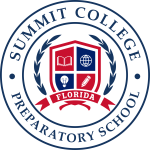Precalculus
Precalculus is a key mathematics course that gives students the tools to succeed in Advanced Calculus and college math. It is designed for advanced learners in grades 11–12 and helps build a clear understanding of functions, equations, and real-life applications.
The Precalculus program promotes critical thinking, graph interpretation, and logical problem-solving. Students study polynomials, rational expressions, trigonometric identities, and conic sections. In addition, each unit includes strategies that boost analytical thinking and support math fluency.
With this preparation, students grow more confident in solving advanced problems. They become fluent with function types, gradually get ready for limits and derivatives, and gain skills vital for success in science, technology, engineering, and math (STEM). As a result, this course is ideal for bridging Algebra 2 and Calculus in a deep and structured way.
Grade Level: 11
Credits: 1
Delivery Format: Live Online (1:1 or Small Group)
Duration: Full Academic Year (194 instructional days)
Instructional Language: English
Precalculus offers a detailed study of algebra, trigonometry, and advanced math concepts that prepare students for Calculus. Students gain deeper math insight by studying functions, complex numbers, vectors, and modeling. Furthermore, the course highlights reasoning, real-world problem-solving, and readiness for future advanced math work.
Core Academic Content
Polynomial, Rational, and Exponential Functions
Trigonometric Functions and Identities
Vectors and Parametric Equations
Complex Numbers and Polar Coordinates
Limits and Introduction to Derivatives
Instructional Framework
Clear, teacher-led instruction focused on core ideas
Curriculum aligned with recognized standards
Designed for multilingual and high-performing students
Step-by-step lessons that build logic and structure
Required Resources
Textbook: Precalculus – Stewart, Redlin, Watson
A scientific or graphing calculator is necessary
Extra problem sets and digital tools are provided
Assessment Structure
Regular concept checks and detailed problem sets
Short quizzes and longer assignments
Hands-on projects that use real data and modeling
Unit reviews and timed tests
Final exam that connects all key ideas
